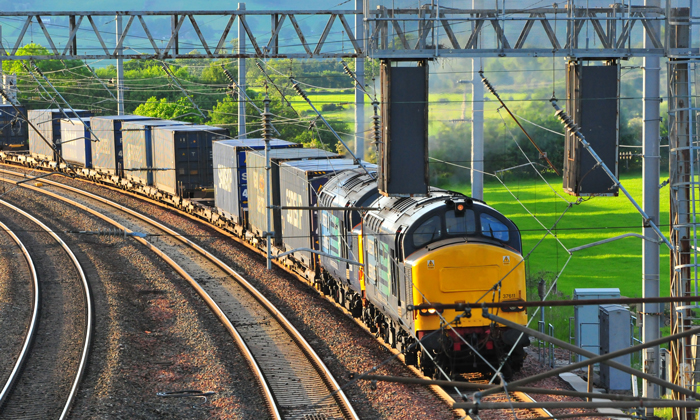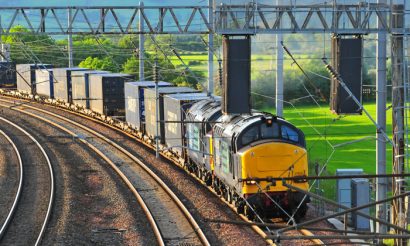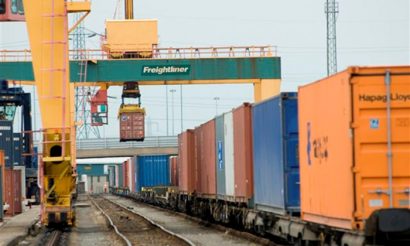Rail freight industry and Network Rail collaborate to increase railway capacity
Posted: 4 April 2017 | | 2 comments
A timetable shakeup is being implemented after Britain’s rail freight industry collaborated over review into more efficient operations.


A timetable shakeup is being implemented after Britain’s rail freight industry collaborated over a two-year, industry-wide review into more efficient freight operations.


Rail freight produces 76% less CO2 than road haulage per tonne of goods carried (credit: Network Rail)
Network Rail and freight operators identified that 50% of the reserved slots on the railway for freight trains were not being used and could potentially be given up for thousands of new passenger and freight services.
This has resulted in 4,702 allocated paths (the slots a freight train has on the railway and in the timetable) per week being relinquished, freeing up capacity on the rail network, meaning they could become available for train operators to run additional services on a daily basis or re-time existing services to reduce congestion and improve reliability.
“It is important the whole rail industry works together to make best use of existing capacity, to minimise the need for additional expensive capacity enhancement schemes,” said Paul McMahon, Network Rail’s Managing Director for Freight and National Passenger Operators. “Capacity has been freed up for the whole railway but essential capacity is reserved for freight operators. This is important given the need to support the growth of freight on the network to support the economy.”


Freight takes 7.6 million lorry journeys off the road each year (credit: Network Rail)
This additional capacity has cost nothing, has not led to any reductions in the number of freight trains running on the network and represents an opportunity for freight and passenger operators to increase traffic on the network without the need for expensive infrastructure enhancement schemes.
The spare capacity can be attributed to:
- The unprecedented decline in coal traffic over the last two years, and a dip in iron and steel
- More efficient freight operations including running longer, fuller, heavier trains
- Better timetabling and freight industry productivity, running fewer, part-loaded freight trains, reducing wasted capacity.
“The freight operators and Network Rail have worked together in an effective and pragmatic way for the wider industry good,” added Russell Mears, chief executive of Freightliner and Chair of the Rail Delivery Group Freight Group. “Whilst retaining some key paths as strategic capacity to support future freight growth the release of other residual paths is essential in helping the government get the best value for money from our capacity constrained railway.”
Construction and intermodal freight traffic is growing on the rail network and additional paths are needed in order to support the economy across Britain. 1,000 of the removed paths have been safeguarded for future strategic freight growth, which is essential to allow for expected increases in key freight markets.
The rail freight market can have the confidence that future traffic growth can take place without being hindered by the need to always build additional capacity.




Rail freight is a small player in the overall freight market. It has lost a third of its volume and revenue and I suspect a huge chunk of its profits because of an excessive focus and dependency on low value bulk. It has a minimal presence in the high value time sensitive logistics sector. Believing it can somehow switch resources from bulk freight and take a chunk of this market is self delusion run riot. This market is driven by imperatives the rail sector does not even recognise. It needs a fundamental re-positioning of competence, capability, competitiveness as well as massively changing its operational, commercial and technical models. Longer heavier trains are not relevant to this market which needs routine fast frequent fulfilment delivered with precision 24/7. As for the comment on HS2 the position on freight is at best opaque. The “released capacity” on the classic network will in my view be taken up by passenger operators able to operate trains that will compete closely on price and timings with HS2. There is no real capacity issue on the network. It is just badly managed.
When HS2 comes into being then there will be more room for the freight trains especially when there will be no express trains to worry about.